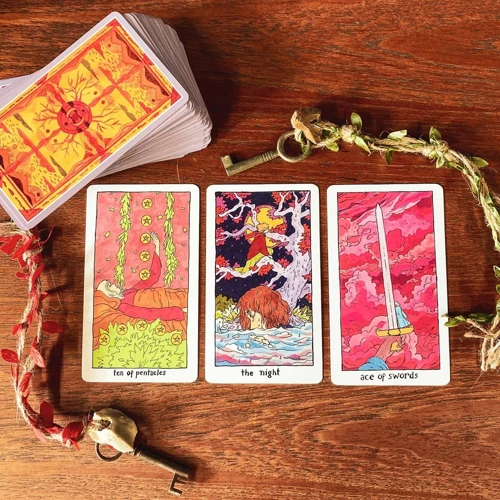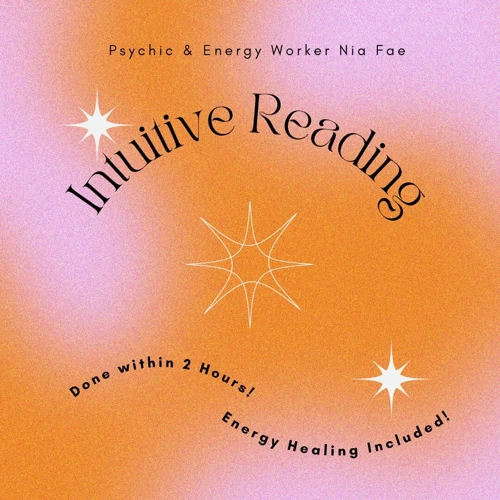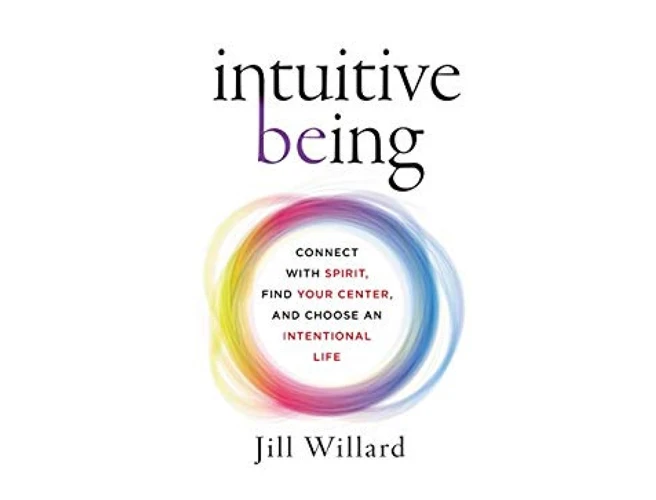Spirituality is a deeply personal and profound aspect of human existence, encompassing a wide range of beliefs, practices, and experiences. At the core of this journey lies a mysterious force known as intuition. The Role of Intuition in Spirituality and Spiritual Growth explores the intricate connection between these two realms, shedding light on how intuition serves as a guiding force along the path to spiritual enlightenment. By tapping into our inner wisdom and embracing our intuitive abilities, we can unlock a deeper understanding of ourselves, the world around us, and our connection to something greater than ourselves. Join us as we delve into the meaning of intuition, its power, and its role in spiritual guidance, energy, healing, manifestation, and personal growth.
Contents
- The Meaning of Intuition
- The Power of Intuition
- Intuition and Spiritual Guidance
- Intuition and Energy
- Cultivating Intuition for Spiritual Growth
- Challenges and Obstacles
- The Role of Intuition in Healing
- Intuition and Manifestation
- Conclusion
-
Frequently Asked Questions
- 1. What is the difference between intuition and instinct?
- 2. Can everyone develop their intuition?
- 3. How can I differentiate between intuition and my own thoughts or emotions?
- 4. Can intuition guide me in making important life decisions?
- 5. How can I enhance my intuitive abilities?
- 6. Is intuition limited to spiritual matters?
- 7. How can I trust my intuition when it goes against logical reasoning?
- 8. Can intuition help in the healing process?
- 9. Is intuition a form of psychic or supernatural ability?
- 10. Can practicing intuition lead to personal growth and spiritual transformation?
- References
The Meaning of Intuition

Intuition is a multifaceted concept that can be difficult to define precisely, yet its significance in spirituality is undeniable. Defining Intuition involves accessing our subconscious knowledge and insights without rational explanation. It is a deep knowing or a gut feeling that guides us towards truth and understanding. Intuition transcends logical reasoning and taps into a higher source of wisdom. It is often associated with the inner voice, the sixth sense, or the “gut feeling.” Intuition is a powerful tool for self-discovery and growth, allowing us to access information beyond the limitations of our conscious mind. To explore the intricacies of intuition further, click here. As we develop and trust our intuitive abilities, we can unlock a wealth of insights and navigate our spiritual journey with greater clarity and purpose.
Defining Intuition
Intuition is a complex and elusive concept that defies easy definition. At its core, defining intuition involves tapping into a deep knowing or an inner sense of truth that transcends logical reasoning. It is a form of insight that arises from our subconscious mind, often without a clear and rational explanation. Intuition can manifest as a gut feeling, an instinct, or an inner voice guiding us towards a particular course of action. It is a profound tool that helps us navigate the complexities of life and make decisions that align with our authentic selves. However, it’s important to note that intuition is not driven by emotions or personal biases, but rather by a sense of universal wisdom and understanding. Developing a connection with our intuition requires cultivating self-awareness, mindfulness, and trust in our own innate wisdom. To explore further the power and implications of intuition, check out this insightful article.
The Connection to Spirituality
The Connection to Spirituality:
– Intuition serves as a vital bridge between our inner selves and the realm of spirituality. It is through intuition that we can tap into the deeper dimensions of our existence and connect with something greater than ourselves.
– Spirituality revolves around the exploration of the inner self, transcending the boundaries of the physical world. Intuition acts as the compass that guides us on this inner journey, helping us navigate the unknown and discover our true essence.
– Intuition provides a direct channel of communication between our conscious mind and the divine. It enables us to access divine guidance and receive intuitive insights that can lead us towards spiritual growth and enlightenment.
– Through intuition, we can experience a profound sense of interconnectedness with the universe and all living beings. It allows us to recognize the inherent spirituality in everything around us, fostering a sense of unity and oneness.
– Spirituality often involves exploring existential questions, seeking meaning, and finding purpose in life. Intuition plays a crucial role in this process, as it helps us uncover our deepest truths and align with our authentic selves.
– The connection between intuition and spirituality is a deeply personal experience, unique to each individual. By cultivating and trusting our intuition, we can embark on a transformative spiritual journey filled with wisdom, guidance, and self-discovery.
The connection between spirituality and intuition is a profound and intricate one. As we explore the depths of our intuition, we open ourselves up to the vast possibilities of spiritual growth and transformation, allowing us to embark on a deeply fulfilling and enlightening path.
The Power of Intuition

Intuition holds immense power in guiding us towards spiritual growth and understanding. Listening to Your Inner Voice allows us to tap into our innate wisdom and make decisions that align with our higher purpose. When we honor our intuition, we are more likely to follow the path that leads to our authentic selves and meaningful experiences. Intuition transcends the limitations of logic and intellect, offering us insights and perspectives that may not be readily apparent. It serves as a compass, guiding us towards what feels right and true. Developing Intuitive Abilities is a journey of self-discovery and practice. By cultivating mindfulness, quieting the mind through meditation, and exploring different intuitive techniques, we can strengthen our intuitive muscle and tap into its power more easily. The power of intuition lies in its ability to connect us to a higher source of wisdom, guiding us along our spiritual journey and helping us navigate the complexities of life.
Listening to Your Inner Voice
Listening to your inner voice is a fundamental aspect of harnessing the power of intuition in your spiritual journey. This inner voice, also known as your intuition or gut feeling, is a valuable source of guidance and wisdom. Here are some key points to consider when it comes to listening to your inner voice:
- Tuning In: To hear your inner voice clearly, it is important to create space for quiet reflection and stillness. Engaging in practices such as meditation, mindfulness, or journaling can help you cultivate a sense of inner calm and receptiveness to the messages from your intuition.
- Recognizing Signals: Your inner voice communicates with you through various signals and sensations. These could be a feeling of resonance or alignment with a certain decision or a sense of unease or discomfort when something isn’t right. Pay attention to the subtle cues and bodily sensations that accompany your intuitive insights.
- Trusting Intuition: Trust is crucial when it comes to listening to your inner voice. Trust that your intuition has your best interests at heart and can guide you towards the right path. It may not always align with logical reasoning or external opinions, but learning to trust your inner voice allows you to tap into a deeper sense of knowing.
- Discernment: While intuition is a powerful tool, it is important to exercise discernment and balance it with rational thinking. Use your critical thinking skills to analyze and evaluate the insights you receive from your inner voice. This helps you make informed decisions that align with both your intuitive guidance and practical considerations.
- Practice: Listening to your inner voice is a skill that can be cultivated through practice. The more you consciously tune in and act upon your intuitive nudges, the stronger and clearer your inner voice becomes. Over time, it becomes easier to distinguish between the genuine guidance of your intuition and the noise of external influences.
Remember, your inner voice is a unique compass that can guide you towards your spiritual growth and personal fulfillment. By actively listening to your inner voice and heeding its wisdom, you can navigate your spiritual journey with greater confidence and alignment.
Developing Intuitive Abilities
Developing intuitive abilities is a transformative process that requires dedication and practice. One of the foundational steps in developing intuitive abilities is to cultivate self-awareness. By paying attention to our thoughts, emotions, and physical sensations, we can identify patterns and understand how they relate to our intuitive insights. Journaling our experiences, dreams, and synchronicities can also enhance our awareness and help us recognize the messages that come through our intuition.
Another vital aspect of developing intuitive abilities is learning to quiet the mind and cultivate inner stillness. Through practices such as meditation, breathwork, and mindfulness, we can create space for our intuition to flourish. By temporarily letting go of the incessant chatter of the mind, we create a receptive state in which intuitive insights can arise.
Additionally, exploring different modalities and techniques can help expand our intuitive abilities. Some people find that working with divination tools such as tarot cards or pendulums enhances their intuitive connection. Others may benefit from energy healing practices like Reiki, which can help clear energetic blockages and attune us to subtle vibrations.
It is essential to trust and follow our intuitive guidance, even if it seems illogical or contradictory to our rational mind. Developing intuitive abilities requires courage and a willingness to step outside our comfort zone. As we continue to practice and validate our intuitive insights, our confidence in our abilities will grow.
Just like any skill, developing intuitive abilities takes time and patience. It is important to approach the process with an open mind and a willingness to learn. As we deepen our connection with our intuition, we open ourselves up to a world of wisdom and guidance that can profoundly enrich our spiritual journey.
Intuition and Spiritual Guidance

Intuition plays a pivotal role in spiritual guidance, acting as a conduit between the physical and spiritual realms. Intuitive Insights from Spirit Guides provide us with valuable guidance, wisdom, and support on our spiritual journey. These guides can be beings from higher dimensions, ancestors, or even symbolic representations of our own subconscious. Through intuition, we can receive messages, signs, and synchronicities that offer profound insights and direction. Trusting our intuition allows us to tune into the subtle energies and vibrations of the spiritual realm, enabling us to navigate challenges, make decisions aligned with our higher purpose, and deepen our connection to the divine. By harnessing the power of intuition, we can align ourselves with the guidance of our spirit guides, forging a deeper connection to the spiritual realm and opening ourselves up to infinite possibilities for growth and transformation.
Intuitive Insights from Spirit Guides
Spirit guides are often seen as spiritual beings or entities that assist and support individuals on their journey of spiritual growth and enlightenment. These guides can provide intuitive insights that go beyond our usual perception and understanding. They may communicate with us through thoughts, symbols, feelings, or even synchronicities in our everyday lives. These intuitive insights from spirit guides can come in the form of messages, guidance, or signs that offer valuable wisdom, direction, and support. By opening ourselves up to the energy of our spirit guides and developing a strong connection with them, we can tap into their intuitive guidance and receive profound insights that can shape our spiritual journey. It is essential to cultivate a sense of trust, receptivity, and openness in order to truly embrace and understand the intuitive insights that come from our spirit guides. This involves quieting the mind, being present in the moment, and surrendering to the guidance that is being given. With practice and patience, we can deepen our connection with our spirit guides and gain a deeper understanding of our spiritual path. Ready to dive into further ways to utilize intuition on your spiritual journey? Continue reading on using intuition in decision making.
Using Intuition in Decision Making
Using intuition in decision making is a powerful practice that can lead to more aligned and fulfilling choices. Intuition serves as a guiding compass when faced with important decisions, guiding us towards the path that aligns with our higher purpose and true desires. Unlike purely logical decision making, intuition taps into a deeper knowing, taking into account not only the facts and pros and cons but also our inner wisdom and gut feelings. When we trust our intuition, we access a wellspring of insight that can provide clarity and guidance in even the most challenging situations. It allows us to tap into our subconscious knowledge and receive messages from our higher selves or spiritual guides. By quieting the mind and tuning into our intuition, we can connect with a reservoir of wisdom that goes beyond what is immediately apparent. However, it’s worth noting that using intuition in decision making doesn’t mean ignoring rational thinking altogether. Instead, it is about finding a balance between logic and intuition, allowing both to inform our choices. When combined, intuition and logical analysis provide a holistic approach to decision making, allowing us to make choices that not only make sense intellectually but also resonate on a deeper level. To truly harness the power of intuition in decision making, it is important to cultivate self-trust and learn to differentiate between the fear-based voice of the ego and the intuitive whispers of the soul. With practice and experience, we can become more adept at recognizing and honoring our intuitive nudges, leading to decisions that are in alignment with our spiritual growth and overall well-being.
Intuition and Energy

Intuition and energy are intricately intertwined, creating a profound connection between our inner knowing and the energetic vibrations of the universe. Sensing Energetic Vibrations is a remarkable ability that many spiritual seekers develop, allowing them to perceive and interpret subtle energies that exist beyond the physical realm. By honing our intuitive skills, we can tune into these energetic frequencies and gain a deeper understanding of our environment, relationships, and experiences. Intuition acts as a bridge between our conscious awareness and the energetic field, enabling us to sense the underlying currents and dynamics at play. This heightened sensitivity to energy can facilitate healing, enhance spiritual connection, and provide valuable insights for personal growth and transformation. Embracing the link between intuition and energy opens up a world of possibilities for deepening our spiritual journey and connecting with the divine.
Sensing Energetic Vibrations
Sensing energetic vibrations is a fascinating aspect of intuition that plays a crucial role in spirituality. It involves the ability to perceive and interpret subtle energies that exist beyond the physical realm. These energetic vibrations are believed to emanate from every living being, object, and even environments. By developing our intuitive abilities, we can become more attuned to these vibrations and gain deeper insights into the energetic makeup of ourselves and the world around us. When we tap into this level of sensitivity, we may perceive energy as warmth, tingling sensations, or even visual images. For example, during spiritual practices such as meditation or energy healing, individuals often report feeling a shift in the energetic atmosphere, sensing the presence of divine beings, or experiencing a harmonious flow of energy within their bodies. This heightened awareness of energetic vibrations allows us to connect more deeply with our spiritual essence and tap into the interconnectedness of all things. As we become more in tune with these subtle energies, we can use this intuitive understanding to navigate our spiritual path, make decisions aligned with our higher purpose, and cultivate a greater sense of peace and well-being.
Enhancing Spiritual Connection through Intuition
Enhancing spiritual connection through intuition is a profound aspect of spiritual growth. It involves deepening our ability to tune into our inner wisdom and trust the guidance that arises from within. By honing our intuitive abilities, we can establish a direct line of communication with our Higher Self, spirit guides, and the divine energies that surround us. Here are some ways to enhance your spiritual connection through intuition:
1. Quiet the Mind: Find moments of stillness and silence to quiet the chatter of the mind. Through practices like meditation or mindfulness, we create a space for intuition to surface and be heard.
2. Trust and Surrender: Trust that your intuition is a reliable source of guidance. Surrender the need for rational explanations and allow yourself to follow the subtle nudges and intuitive insights that come your way.
3. Follow the Signs: Pay attention to synchronicities, signs, and symbols that appear in your life. These are often messages from the spiritual realm, guiding you towards alignment and connection.
4. Practice Intuitive Journaling: Set aside time to write down your intuitive impressions, dreams, and insights. Journaling helps to strengthen the connection between your conscious mind and your intuitive wisdom.
5. Engage in Spiritual Practices: Incorporate practices such as prayer, visualization, chanting, or energy healing to deepen your spiritual connection. These practices help to open up channels of intuitive communication and foster a greater sense of connection to the divine.
6. Listen to Your Body: Pay attention to the sensations in your body. Your body often holds valuable intuitive information. Notice any tension or ease that arises in response to certain situations or decisions.
7. Stay Present: Embrace the present moment fully. When we are fully present, we are more receptive to the intuitive messages and spiritual guidance that unfolds in our lives.
By consciously enhancing our spiritual connection through intuition, we can tap into a wellspring of wisdom, love, and guidance that supports our spiritual journey. It is through this deep connection that we can experience profound growth, transformation, and a sense of oneness with the spiritual dimensions of existence.
Cultivating Intuition for Spiritual Growth

Cultivating intuition is a transformative practice that can greatly contribute to our spiritual growth and development. Meditation and Intuition go hand in hand, as meditation allows us to quiet the mind and open ourselves to the intuitive guidance that arises from within. By engaging in regular meditation practices, we create space for our intuition to come forth, helping us to gain clarity, insight, and a deep sense of inner peace. Additionally, there are various intuitive practices we can incorporate into our daily lives to deepen our spirituality. These practices may include journaling, visualization exercises, oracle card readings, or energy healing modalities such as Reiki. Each person’s journey is unique, so it is important to explore and find practices that resonate with our individual needs and preferences. By consistently nurturing our intuitive abilities and integrating them into our spiritual practices, we can embark on a profound journey of self-discovery and transformation.
Meditation and Intuition
Meditation is a powerful practice that plays a significant role in enhancing and cultivating intuition. Through meditation and intuition, individuals can deepen their connection with their inner selves and the spiritual realm. By entering a state of deep relaxation and stillness, practitioners can quiet the chatter of the mind and access their intuitive insights more easily. During meditation, individuals may experience flashes of inspiration, heightened awareness, or a heightened sense of clarity. This state allows for a deeper understanding and connection to divine guidance and spiritual wisdom.
During meditation, individuals can also develop their ability to discern the subtle signals of their intuition. By regularly practicing mindfulness and paying attention to their inner experiences, meditators become more attuned to the subtle intuitive whispers that may arise. This heightened sensitivity helps individuals recognize and trust their intuition in their daily lives.
To begin a meditation practice specifically focused on intuition, find a comfortable and quiet space where you can sit or lie down without distractions. Close your eyes and start by focusing on your breath, allowing it to flow naturally. As thoughts arise, observe them without judgment and gently bring your attention back to your breath. With continued practice, you may find that intuitive insights come to you effortlessly during your meditation sessions.
Meditation and intuition work synergistically, creating a powerful foundation for spiritual growth. As individuals cultivate their meditation practice, they create space for their intuition to blossom and guide them on their spiritual journey. So carve out some time for regular meditation, and watch as your intuitive abilities flourish and deepen your connection to the spiritual realm.
Intuitive Practices to Deepen Spirituality
Intuitive Practices to Deepen Spirituality can be transformative and profound, allowing individuals to further explore and connect with their spiritual essence. There are various intuitive practices one can incorporate into their spiritual journey to deepen their connection and expand their awareness.
1. Meditation: Meditation is a powerful practice that helps quiet the mind and cultivate a deeper sense of presence. By stilling the mind and focusing on the present moment, individuals can open themselves up to receiving intuitive guidance and insights from higher realms. Regular meditation practice enhances spiritual connection and intuition.
2. Journaling: Keeping a spiritual journal can be a valuable practice for deepening intuition. Writing down thoughts, feelings, dreams, and experiences allows individuals to tap into their subconscious mind and access intuitive wisdom. Journaling also helps in recognizing patterns, synchronicities, and guidance received from the spiritual realm.
3. Intuitive Movement: Engaging in activities such as yoga, tai chi, or dance can be an excellent way to deepen spirituality through intuition. These practices focus on body awareness, breath control, and mindful movement, allowing individuals to connect with their inner selves and access intuitive insights.
4. Nature Connection: Spending time in nature is a powerful way to deepen spirituality and enhance intuition. Whether it’s going for a walk in the woods, sitting by the ocean, or simply being in a garden, immersing oneself in nature’s beauty and serenity opens the door to receiving intuitive guidance and connecting with the natural rhythms of the universe.
5. Practicing Mindfulness: Being fully present in the moment is a fundamental aspect of deepening spirituality and intuition. Mindfulness practices, such as mindful eating, mindful breathing, or simply observing and witnessing the present moment without judgment, help individuals cultivate a deeper sense of awareness and attunement to their intuition.
Remember, intuitive practices are highly personal, and it’s important to find the ones that resonate with you. Experiment with different techniques and trust your inner guidance to discover the intuitive practices that deepen your spirituality and lead you closer to your authentic self.
Challenges and Obstacles

On the path to spiritual growth, it is common to encounter various challenges and obstacles that can hinder our intuitive development and hinder our progress. Overcoming Doubt and Skepticism is crucial as our rational mind may question the validity and reliability of intuition. Doubt can lead to skepticism, preventing us from fully embracing and trusting our intuitive insights. It is essential to cultivate a sense of openness and curiosity to explore the realm of intuition without judgment or doubt. Furthermore, Managing Fear and Ego is another significant hurdle to overcome. Fear and ego can cloud our judgment and distort our intuitive perceptions. By acknowledging and addressing our fears and egoic tendencies, we can create space for intuitive guidance to come through more clearly. Embracing humility and surrendering the need for control can help us navigate these challenges and allow our intuition to guide us towards spiritual growth and enlightenment.
Overcoming Doubt and Skepticism
Overcoming doubt and skepticism is an essential aspect of embracing intuition in our spiritual journey. Doubt can arise when we question the validity or accuracy of our intuitive insights. Skepticism, on the other hand, stems from a rational and analytical mindset that seeks concrete evidence and logical explanations. However, both doubt and skepticism can hinder our spiritual growth by creating barriers to embracing and fully harnessing the power of intuition.
To transcend doubt and skepticism, it is crucial to cultivate trust in ourselves and our intuitive abilities. Recognizing validation in past intuitive experiences can strengthen our belief in the accuracy and reliability of our inner guidance. Reflecting on instances where our intuition has proven to be correct can create a foundation of confidence that supports us in overcoming doubt and skepticism.
Additionally, seeking validation from trusted sources can provide external support and affirmation for our intuitive insights. This might involve consulting with spiritual mentors, joining spiritual communities, or seeking the guidance of practitioners who are experienced in intuitive practices. Their insights and validation can help us build trust in our own intuition and overcome any lingering doubts.
Moreover, practicing discernment is crucial in distinguishing between true intuitive guidance and other influences such as fear, ego, or wishful thinking. By developing our ability to differentiate between these various influences, we can have more confidence in the accuracy and relevance of our intuitive insights.
It is important to remember that overcoming doubt and skepticism is an ongoing process. Our beliefs and perspectives can constantly evolve, and it is natural to have moments of uncertainty. However, by actively working on nurturing trust in our intuition, seeking validation, and practicing discernment, we can gradually overcome doubt and skepticism, allowing our intuitive abilities to thrive and guide us on our spiritual path.
Managing Fear and Ego
Managing fear and ego is an essential aspect of cultivating intuition and achieving spiritual growth. Fear often arises when we step outside our comfort zones or confront the unknown. It can hinder our ability to trust our intuitive guidance, keeping us stuck in limiting beliefs and patterns. To manage fear, it is crucial to develop self-awareness and recognize when fear is clouding our judgment. By acknowledging our fears and understanding their origins, we can start to release their grip on us. Techniques such as mindfulness and meditation can help us observe our fears without judgment and cultivate a sense of inner calm. Additionally, ego can also interfere with our intuition and spiritual growth. The ego thrives on control, validation, and separation, while intuition thrives on surrender, trust, and interconnectedness. Managing ego involves recognizing when our ego is in the driver’s seat and learning to detach from its agendas and desires. This requires humility, self-reflection, and a willingness to let go of attachments to our ego identity. By managing fear and ego, we create space for our intuition to shine through and guide us towards a deeper understanding of ourselves and our spiritual journey.
The Role of Intuition in Healing

Healing is a holistic process that involves the restoration of physical, emotional, and spiritual well-being. highlights the profound impact intuition can have on this journey of self-renewal. Intuition serves as a powerful guide, allowing us to tap into the underlying causes of our ailments and gain insight into the steps necessary for healing. By listening to our inner voice and trusting our intuitive guidance, we can uncover hidden blockages, unresolved emotions, and energetic imbalances that may be contributing to our health issues. Intuitive healing modalities such as energy healing, intuitive bodywork, and vibrational medicine empower individuals to access their innate healing abilities and promote self-healing. Intuition acts as a compass, leading us to the most suitable therapies, practices, and remedies for our unique healing journeys. Acknowledging and embracing the role of intuition in healing can facilitate profound transformations, both physically and spiritually.
Intuitive Healing Modalities
Intuitive healing modalities encompass a diverse range of practices that harness the power of intuition and energy to facilitate healing on a spiritual and emotional level. These modalities recognize that healing goes beyond the physical body and acknowledge the interconnectedness of mind, body, and spirit. One popular modality is Reiki, a hands-on healing technique that channels universal life force energy to balance the body’s energy centers or chakras. Practitioners use their intuition to guide the placement of their hands and identify areas of energetic blockages. Another modality is intuitive energy healing, where practitioners use their intuitive abilities to sense and manipulate energy flows within the body. Through this practice, they can identify imbalances, remove energetic blockages, and facilitate the flow of healing energy. Similarly, crystal healing involves using the intuitive guidance to select and place crystals on specific areas or meridians of the body to balance and align the energy field. These intuitive healing modalities empower individuals to tap into their own innate healing abilities and restore harmony on a holistic level. By addressing the energetic imbalances that underlie physical and emotional ailments, these modalities offer powerful tools for healing and personal transformation.
Intuition as a Healing Tool
Intuition plays a significant role in the realm of healing, as it can serve as a powerful tool for identifying and addressing imbalances within the mind, body, and spirit. allows us to tap into the deeper layers of our consciousness and access insights that can guide us towards holistic well-being. Here are some ways in which intuition can be utilized as a healing tool:
1. Energy Healing: Intuition can lead healers to identify energetic blockages and imbalances within a person’s energy field. By intuitively sensing the flow of energy, practitioners can guide clients towards healing and restoration.
2. Emotional Healing: Intuition can help uncover the root causes of emotional pain and trauma. This inner knowing can guide individuals towards the necessary steps for healing, whether it be through therapy, self-reflection, or forgiveness.
3. Self-Healing: Intuition provides valuable insights into our own physical and emotional well-being. By tuning into our intuitive guidance, we can make conscious choices about our lifestyle, nutrition, and self-care practices, which contribute to our overall health and healing.
4. Intuitive Medicine: Intuition can complement traditional medical practices by guiding healthcare professionals towards additional diagnostic information or alternative treatment options that may be beneficial for patients.
5. Intuitive Bodywork: Practitioners who incorporate intuition into bodywork techniques can intuitively sense areas of tension, pain, or imbalance in the body. This allows for a more targeted and effective approach to physical healing.
Harnessing the power of intuition as a healing tool requires trust in our own inner wisdom and the willingness to listen to the subtle messages that arise. By integrating intuition into the healing process, individuals can embark on a journey of self-discovery, empowerment, and transformation.
Intuition and Manifestation
When it comes to manifesting our desires and aligning with our spiritual goals, intuition plays a pivotal role. are intertwined in a dance of co-creation, where our intuitive guidance helps us navigate the path towards manifestation. By honing our intuitive abilities, we become attuned to the subtle whispers of the universe, guiding us towards the right actions, opportunities, and synchronicities that will aid in materializing our desires. Intuition serves as a compass, showing us which steps to take and when to take them. It helps us discern between aligned and misaligned choices, ensuring that our intentions are in harmony with our highest good. When we trust our intuition in the manifestation process, we tap into a powerful force that supports and amplifies our efforts. By aligning our intuitive insights with our spiritual goals, we strengthen our connection to the divine and unlock the full potential of the manifesting process.
Using Intuition for Manifesting Desires
Using intuition for manifesting desires can be a powerful tool in our spiritual growth and manifestation practices. When we tap into our intuitive abilities, we connect with a deeper knowing and understanding of our desires and how to bring them into reality. Intuition allows us to bypass the limitations of logical thinking and access insights and guidance from a higher source. Manifestation is the process of intentionally attracting what we desire into our lives by aligning our thoughts, beliefs, and emotions with our desired outcome. By using intuition in this process, we can gain valuable insights and guidance on the best steps to take towards manifesting our desires. Intuition can provide us with a sense of clarity, helping us discern whether a particular desire is in alignment with our higher self and spiritual goals. It can also guide us towards inspired action and opportunities that may not be apparent through a purely logical approach. Trusting our intuition and allowing it to guide the manifestation process can lead to more aligned and fulfilling outcomes. It is important, however, to balance intuition with practical considerations and take inspired action in the physical world. By utilizing our intuitive abilities to manifest our desires, we can co-create our reality in harmony with the universe.
Aligning Intuition with Spiritual Goals
When it comes to spirituality, setting goals and intentions is a powerful way to focus our energy and attention. However, it is equally important to align our intuition with these goals. By doing so, we create a harmonious relationship between our inner guidance system and our desires for spiritual growth. Here are some key considerations for aligning intuition with spiritual goals:
- Deepening Self-Connection: Take time to develop a deeper connection with yourself through practices such as meditation, journaling, or self-reflection. By enhancing self-awareness, you become more attuned to your intuition and can better decipher its messages.
- Tuning into Inner Wisdom: Pay attention to the whispers of your inner wisdom. This may manifest as a gentle nudge, a feeling of resonance, or a sense of knowing. Trust and cultivate your intuitive insights to guide you towards spiritual goals that are in alignment with your authentic self.
- Discernment and Disciplined Action: While intuition is a valuable tool, it is important to combine it with discernment and disciplined action. Reflect on whether your intuitive guidance supports your spiritual goals and determine practical steps for implementation.
- Cultivating Patience: Often, spiritual growth unfolds gradually over time, and the guidance received through intuition may not always align with immediate desires. Practice patience and trust the timing of the universe, allowing your intuition to guide you towards the right actions at the right time.
- Remaining Open to Divine Guidance: In the pursuit of spiritual goals, it is essential to remain open to divine guidance or synchronicities. Be receptive to signs, symbols, or messages from the universe that may offer insights and opportunities along your spiritual path.
By aligning your intuition with your spiritual goals, you create an integrated approach to personal growth that is guided by both inner wisdom and intentional action. This powerful combination can lead to a more meaningful and transformative spiritual journey. Remember, spirituality is a unique and personal experience, so trust in your intuition to guide you towards the path that resonates with your soul’s purpose.
Conclusion
In conclusion, the role of intuition in spirituality and spiritual growth cannot be overstated. It serves as a guiding force, helping individuals connect with their inner wisdom and navigate their spiritual journey with clarity and purpose. Intuition allows us to tap into a higher source of knowledge and understanding, transcending the limitations of our conscious mind. By listening to our inner voice and developing our intuitive abilities, we gain access to a wealth of insights and guidance that can support us in decision-making, deepening our spiritual connection, and manifesting our desires. However, it is important to be aware of the challenges and obstacles that may arise along the way, such as doubt, skepticism, fear, and ego. Overcoming these hurdles and cultivating trust in our intuition is crucial for our spiritual growth. Intuition also plays a significant role in healing, providing us with intuitive healing modalities and serving as a powerful tool for facilitating healing processes. By aligning our intuition with our spiritual goals and using it for manifestation, we can create a harmonious balance between our inner guidance and the external world. Ultimately, embracing and honing our intuition empowers us to walk the spiritual path with authenticity, alignment, and profound personal transformation.
Frequently Asked Questions
1. What is the difference between intuition and instinct?
While both intuition and instinct involve a deep knowing, there is a subtle distinction between the two. Intuition is often associated with a higher level of consciousness and spiritual insight, whereas instinct is a more primal and automatic response rooted in survival and biological programming.
2. Can everyone develop their intuition?
Yes, absolutely! Intuition is an innate ability that we all possess. It’s a matter of cultivating and trusting it through practices such as meditation, mindfulness, and actively listening to our inner voice.
3. How can I differentiate between intuition and my own thoughts or emotions?
Discerning between intuition and personal thoughts or emotions can be challenging. Intuition often presents itself as a quiet, subtle knowing, whereas our thoughts and emotions tend to be more active and reactive. Paying attention to the feeling of certainty and the absence of personal bias can help distinguish intuition from other mental processes.
4. Can intuition guide me in making important life decisions?
Yes, intuition can be a powerful guide when making decisions. By tuning in and trusting your inner guidance, you can tap into a deeper wisdom that can provide clarity and direction in navigating life’s choices.
5. How can I enhance my intuitive abilities?
There are several ways to enhance your intuitive abilities, including practicing mindfulness and meditation, keeping a journal to record intuitive insights, working with oracle cards or divination tools, and connecting with nature to deepen your intuitive connection.
6. Is intuition limited to spiritual matters?
No, intuition is not limited to spiritual matters. It can be applied to various aspects of life, including relationships, career choices, and problem-solving. Intuition serves as a valuable tool in gaining insights and making informed decisions in any area of life.
7. How can I trust my intuition when it goes against logical reasoning?
Trusting your intuition even when it goes against logic can be challenging. However, remember that intuition taps into a deeper wisdom beyond the limitations of the rational mind. Practice acknowledging and validating your intuitive experiences, and observe how they contribute to positive outcomes in your life.
8. Can intuition help in the healing process?
Yes, intuition can play a significant role in the healing process. It can guide us towards the root causes of physical, emotional, and spiritual imbalances, and suggest the most appropriate healing modalities or approaches.
9. Is intuition a form of psychic or supernatural ability?
Intuition is often associated with psychic abilities, but it is not necessarily supernatural. It is a natural and inherent aspect of our consciousness, allowing us to tap into higher knowledge and spiritual insights.
10. Can practicing intuition lead to personal growth and spiritual transformation?
Absolutely! Developing and practicing intuition can lead to profound personal growth and spiritual transformation. It helps us deepen our self-awareness, recognize patterns, trust ourselves more fully, and align with our true purpose and authentic self.







